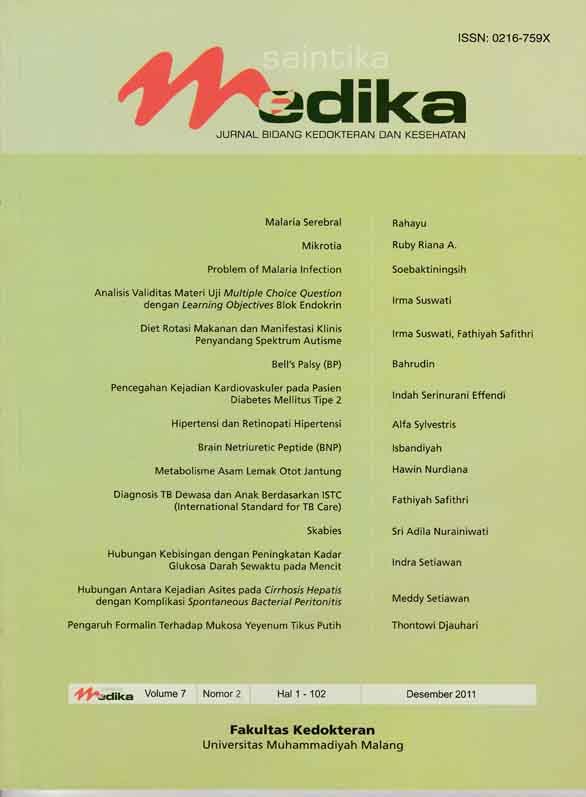Analisis Validitas Materi Uji Multiple Choise Question dengan Learning Objectives Blok Endokrin
DOI:
https://doi.org/10.22219/sm.v7i2.4072Abstract
The evaluation of block learning process uses multiple choice questions (MCQ). The MCQ graduation percentage is very low
on some blocks, especially on the Block IKD-I and Endocrine. The items used have not been tested on their validity and reliability. The purpose of this studys to determine the validity of MCQ test materials with the learning objectives of the Endocrine learning system. The research design uses observational analytical, measured by the MCQ on the difficulty level, the index of the discrimination power and the validity - reliability with alpha coefficient of KR-20 clan. The result MCQ-1 Block Endocrine shows the average value of 51, witn 38.8% completion percentage. Based on the difficulty level, 10.8% belongs to simple questions, 70.3% belongs to medium questions, 18.9% belongs to difficult questions, 27% belongs to good
questions, 14.9% belongs to good questions but need improvement, and 58.1% belongs to poor that need to be repaired questions. While the valid and reliable items are 62.2% and the invalid and unreliable items are 37.8%. The results showed only a small number of items (25.7%) Endocrine MCQ-I test is valid, reliable, having good difficulty level and was well received.
Key words: validity, reliability, questions, MCQ
Downloads
Downloads
Published
Issue
Section
License
Authors who publish with this journal agree to the following terms:
- Authors retain copyright and grant the journal right of first publication with the work simultaneously licensed under a Creative Commons Attribution-ShareAlike 4.0 International License that allows others to share the work with an acknowledgment of the work's authorship and initial publication in this journal.
- Authors are able to enter into separate, additional contractual arrangements for the non-exclusive distribution of the journal's published version of the work (e.g., post it to an institutional repository or publish it in a book), with an acknowledgment of its initial publication in this journal.
- Authors are permitted and encouraged to post their work online (e.g., in institutional repositories or on their website) prior to and during the submission process, as it can lead to productive exchanges, as well as earlier and greater citation of published work (See The Effect of Open Access).

This work is licensed under a Creative Commons Attribution-ShareAlike 4.0 International License.
















